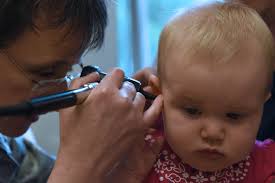Should children be allowed mental health days?
The BBC reports that there is no legal difference between taking a mental health sick day and a day off for a physical problem. O2 published an interesting article about how to take a mental health day off work. If adults are allowed, why are we making children go into school when they are experiencing the same problems?
The Merriam-Webster dictionary defines a mental health day as: a day that an employee takes off from work in order to relieve stress or renew vitality. So, this would translate to a child or young person taking a day off from their education setting in order to relieve stress or renew vitality.
Physical vs mental
If your child had been throwing up all night would you tell them they had to go to school? Presumably no, you’d allow them the day off, so why do we make them go into school when their mental health is jeopardised? There has been so much focus on breaking the stigma around mental health, and the idea that it needs to be treated just as seriously as physical health. So why aren’t we putting this into practice with our children?
We need to start thinking about the implications of our actions. If we are telling a child they have to go to school but an adult doesn’t have to go to work, that child may start to believe a series of things; they may start to believe that their mental health is not as important as an adult’s. It might be that they are really struggling, and believe that it will only become worse as they venture into adulthood. In turn this will have the opposite impact that mental health professionals are trying so hard to achieve. Children and young people won’t want to talk about their problems through fear of bothering their parents and choose to try and deal with it themselves, which can only increase the problem. Bottling up your problems is not the way forward, so let children and young people know that it’s good to talk through their worries or concerns.
I think it is important to educate parents and education professionals on the importance of mental health days, and when they would be useful. In turn, if a parent is allowing mental health days, it will also relieve the stigma, and the young person will be more willing to talk which can help them to feel a bit better and moves them in a positive direction.

Education about mental health days is vital… when should we allow them and when should we tell them no?
Obviously, recognising if your child requires a mental health day is more difficult than recognising if they have been throwing up all night. I understand this. However as a parent, or education professional dealing with children and young people, it is so essential that you understand children and young people’s needs. A child does not require a mental health day simply because they are scared of giving a presentation, or because they forgot to do their homework.
However…
When a child or young person is feeling so bad that they struggle to cope, and going to school is likely to make it worse. If your child feels they need a mental health day, take the time to talk to them. Understand them, and try and help. They may take a mental health day because they feel stressed, anxious or overwhelmed. It may also be if they haven’t been sleeping well because of mental health issues, when they know they will not perform to the best of their ability.
Allowing your child to take one or two days a year may reinforce the idea that it is so vital to take care of their minds and wellbeing. Attendance at school is important, and schools are pushing 100% attendance rewards. There are times when one mental health day can solve problems before they grow and lead to school avoidance or physical What is not a good idea is allowing your child to sleep all day, or watch TV during a mental health day. Take this chance to be productive. Use the day to deal with any problems they may have.
What is a good way to spend a mental health day?
Solve a problem. If your child is struggling through stress, take the time to sit down with their school and try and resolve this.
Practice self-care. Your child may be exhausted. Taking this time to perhaps jumpstart a good sleeping pattern, or just spending some good quality time together may help.
See a professional. Take the time to talk to them. Try and convince them to let you take them to see a doctor or psychologist. Remember it all starts with a conversation.
REMINDER
Stress is all relative. Mental health is relative. You may look back on your life and see that all those things you struggled with, they may seem irrelevant and small. Remember how you sometimes felt it was the end of world. Be respectful, and listen to your child.
I believe that children and young people should be allowed mental health days. This is all down to opinion.
It is easier to build strong children than repair broken adults
Fredrick Douglass
If you believe a child or young person needs help; contact us.











